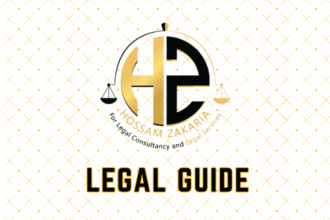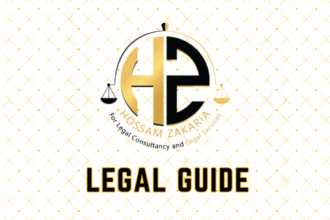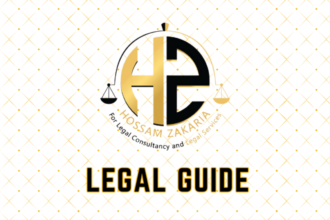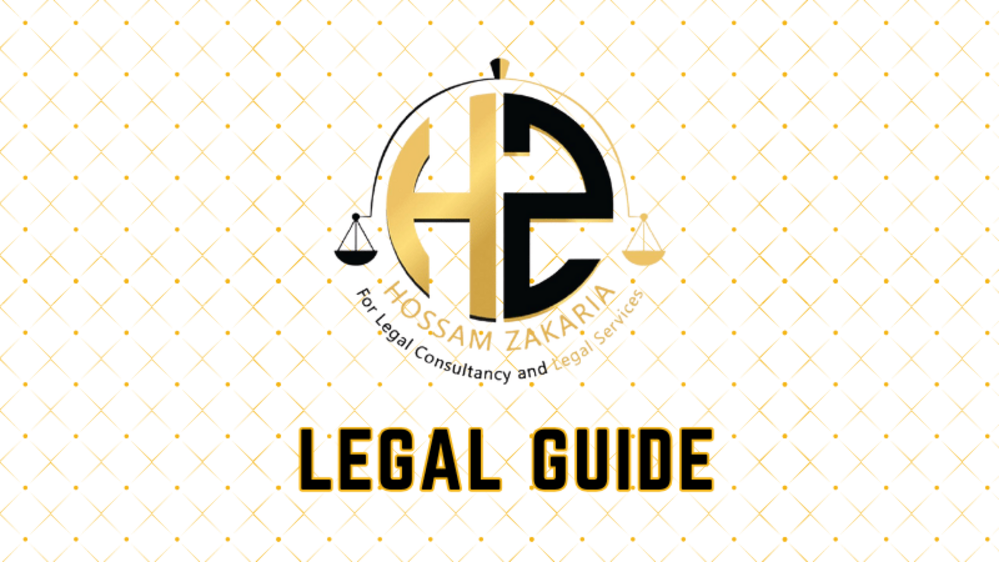Introduction: Navigating Board of Directors Duties and Liabilities in the UAE for 2025
In the rapidly evolving legal and business landscape of the United Arab Emirates, the role of company directors has never been more critical—or more scrutinized. As the UAE continues to cement its position as a global investment hub, legislative reforms in corporate governance have introduced new challenges and obligations for board members. The latest amendments to the Federal Decree-Law No. 32 of 2021 concerning Commercial Companies (the “UAE Companies Law”), and regulatory guidance anticipated for 2025, have considerably reshaped the duties and liabilities of directors. This guide provides a comprehensive expert analysis of directors’ responsibilities under UAE law for 2025, offering actionable insights for business leaders, legal advisors, human resources professionals, and investors aiming to ensure robust legal compliance and risk management.
The significance of this topic is magnified by the UAE’s ongoing push toward enhanced corporate transparency, accountability, and alignment with global best practices, reflecting both investor demand and regulatory priorities. As enforcement becomes more rigorous and penalties more substantial, understanding these director obligations is no longer optional—it is essential for effective risk mitigation and strategic governance.
Table of Contents
- Overview of Relevant UAE Laws and 2025 Updates
- Understanding Board Duties: Key Responsibilities Under UAE Law
- Evolution of Director Liabilities: Old vs. New Provisions
- Practical Application, Compliance Risks, and Penalty Framework
- Case Studies and Examples
- Effective Compliance and Risk Mitigation Strategies
- Conclusion and Best Practices for 2025 and Beyond
Overview of Relevant UAE Laws and 2025 Updates
Main Legislative and Regulatory Framework
The primary source governing director duties and liabilities in the UAE is Federal Decree-Law No. 32 of 2021 on Commercial Companies, which replaced its predecessor (Law No. 2 of 2015). This law applies to most commercial entities in the UAE (excluding certain free zone companies and government-owned entities unless specifically opted in). Complementing this are various Cabinet Resolutions, Ministerial Guidelines, and the SCA’s Corporate Governance Code for Public Joint Stock Companies, each contributing layers of obligation and enforcement.
Key official legal sources include:
- Federal Decree-Law No. 32 of 2021 (Companies Law)
- Cabinet Resolution No. 3 of 2023 (Corporate Governance)
- Ministerial Decision No. 28 of 2023 (Disclosure Requirements)
- Federal Law No. 18 of 1993 (Commercial Transactions Law, relevant for fiduciary duties)
Recent 2025 Legislative Developments
While Federal Decree-Law No. 32 of 2021 laid the foundation, 2025 brings further clarifications and expected regulatory enforcement, driven by recent guidance from the UAE Ministry of Justice and anticipated Cabinet Resolutions. These updates reflect the UAE’s intention to tighten director accountability and advance board professionalism. Notably, new compliance requirements for board composition, conflicts of interest, and personal liability have been introduced, reflecting lessons from international best practices.
Understanding Board Duties: Key Responsibilities Under UAE Law
General Duties of Directors
UAE law imposes both general and specific duties upon company directors. These include:
- Duty of Care and Diligence: Directors must exercise the care, diligence, and skill that a reasonably prudent person would exercise in similar circumstances (Art. 162, Companies Law).
- Fiduciary Duties: Directors must act in the best interests of the company, avoiding conflicts of interest and self-dealing (Art. 162 and 166).
- Duty of Loyalty: Board members must prioritize the interests of the company over personal interests, and must disclose any conflict (Art. 167).
- Duty to Avoid Conflicts and Disclose: Directors must promptly disclose any direct or indirect interests in company contracts, and refrain from participating in relevant votes (Art. 166).
- Duty to Comply with Law and Articles: Directors must ensure compliance with legislation, regulatory requirements, and the company’s memorandum and articles of association.
- Obligation to Maintain Accurate Records: The board must ensure that full and accurate records and accounts are kept.
Specific Duties Introduced or Clarified for 2025
- Implementation of board composition requirements to ensure independent oversight.
- Mandatory board training to ensure awareness of updated commercial, AML, and governance obligations.
- Enhanced obligations to document dissenting votes, providing greater clarity on individual director responsibility.
Evolution of Director Liabilities: Old vs. New Provisions
The UAE has undergone a marked evolution in director accountability. Recent reforms have increased the personal stakes for non-compliance and clarified the scope of director liability.
| Obligation | Before (Law No. 2 of 2015) | Now (Law No. 32 of 2021 & 2025 Updates) |
|---|---|---|
| Duty of Care | General standard | Explicitly states higher standard of ‘reasonably prudent person’; can be enforced by shareholders/regulators |
| Conflict of Interest | Disclose interest; limited detail | Detailed procedures for disclosure, abstaining from vote, public disclosure in minutes, regulatory notification |
| Personal Liability | Liable for losses from violation of law or articles | Joint and several liability for decisions, even for silent directors who failed to object; fines and damages expanded |
| Financial Irregularities | Reporting irregularities, but practical enforcement rare | Mandatory reporting to authorities; criminal sanctions for failure to report fraud or material error |
| Stakeholder Protection | Shareholder-centric | Includes creditors, employees, wider stakeholders |
| Training & Qualification | No legal minimum | Mandatory induction & periodic regulatory training in new Cabinet Resolution |
Suggested Visual: Compliance Evolution Infographic
Place an infographic here summarizing key changes from old to new regime in director responsibilities and liabilities.
Practical Application, Compliance Risks, and Penalty Framework
Application in Real-World Context
Legal requirements for board conduct and decision-making are not theoretical. In practice, they manifest in everyday boardroom processes, ranging from routine approval of financial statements to responding to unexpected regulatory inquiries. Directors now face both broader and deeper expectations for proactive oversight, transparent governance, and documented compliance processes.
Compliance Risks and Penalties
Failure to comply with directors’ duties under UAE law may result in diverse personal and corporate repercussions:
- Administrative Fines: Ranging from AED 10,000 to AED 1,000,000 for breaches of statutory duties (Art. 348–349).
- Personal Financial Liability: Joint and several liability for actual company losses, especially in cases involving violation of law, the articles, fraud, or gross negligence (Art. 162(2)).
- Criminal Sanctions: Potential imprisonment for severe breaches, including falsifying documents, concealment of facts, or fraudulent misrepresentation (Art. 371 and Art. 372).
- Civil Litigation: Actions by shareholders, third parties, or creditors seeking damages for losses.
| Breach | Range of Penalty | Statutory Reference |
|---|---|---|
| Breach of Fiduciary Duty | AED 50,000–500,000 (fine), and/or civil damages | Art. 162–166, Law No. 32/2021 |
| Failure to Disclose Conflict of Interest | AED 20,000–200,000, removal from board, possible criminal liability for concealment | Art. 166 |
| Non-compliance with Reporting/Disclosure | AED 10,000–100,000 per infraction | Art. 348–349 |
| Financial Misstatement or Fraud | Imprisonment, unlimited civil liability | Art. 371–372 |
Suggested Visual: Penalty Comparison Table
Place a penalty table or flowchart visualizing escalation of penalties from administrative fines to criminal sanctions.
Audit and Regulatory Review Processes
- Annual regulatory filings increasingly scrutinized for director signatures, material accuracy, and disclosure compliance.
- UAE Ministry of Justice and Securities and Commodities Authority (SCA) hold random and event-triggered audits of large corporations and at-risk sectors.
Case Studies and Examples
Case Study 1: Undisclosed Conflict of Interest
Situation: A director of a UAE mainland joint stock company failed to disclose a 10% interest in a supplier contract. The omission surfaced during an internal audit, followed by a regulatory complaint from a minority shareholder.
Legal Outcome: The director was found in breach of Art. 166, resulting in a regulatory fine of AED 150,000, mandatory removal from office, and civil action for the recovery of company losses. Since the nondisclosure compromised the company’s decision-making, the contract was voidable, and the company’s reputation was impacted with stakeholders and regulators.
Case Study 2: Directors’ Duty Regarding Insolvency
Situation: The board of a private company ignored warning signs of insolvency and failed to promptly notify the relevant authorities.
Legal Outcome: Under the UAE Bankruptcy Law (Federal Decree Law No. 9 of 2016, as amended), directors were held personally liable for the increase in company debts incurred after the initial insolvency triggers were known. The court imposed joint and several liability, leading to personal asset exposure for negligent board members.
Example: Enhanced Due Diligence for Board Candidates
Following the 2025 compliance updates, companies instituted robust due diligence protocols for selecting directors, including background checks, validation of compliance training, and prior boardroom conduct assessments.
Suggested Visual: Real-World Compliance Checklist
Place a checklist visual for board members and corporate secretaries to ensure annual compliance and ongoing training.
Effective Compliance and Risk Mitigation Strategies
Key Steps for Boards and Organizations
- Board Induction and Training: Develop a rigorous onboarding process, integrating mandatory regulatory and legal training on directors’ duties, including the latest UAE law updates and reporting requirements. Refresher training should be held at least annually.
- Comprehensive Board Policies: Establish or review board charters, conflict of interest policies, whistleblower frameworks, and codes of conduct. Regularly update these documents in line with legislative and regulatory revisions.
- Robust Record-Keeping: Ensure that minutes of meetings clearly document all decisions, dissenting opinions, and related party disclosures as per Art. 167(2).
- Legal Risk Assessment: Schedule periodic legal audits of board activities and compliance with reporting and disclosure rules.
- Active Engagement with Regulatory Updates: Assign responsibility for monitoring legal and regulatory changes (e.g., via the Federal Legal Gazette or Ministry circulars) and adapting practices accordingly.
- Insurance Considerations: Evaluate and, if appropriate, secure Directors and Officers (D&O) insurance to help mitigate the financial exposure associated with personal liability claims.
Suggested Visual: Annual Compliance Process Flow Diagram
Place a process flow diagram illustrating the annual compliance cycle—from induction to policy review, reporting, and regulatory engagement.
Conclusion and Best Practices for 2025 and Beyond
The evolving legislative framework governing board duties and liabilities in the UAE demonstrates the country’s commitment to aligning with international governance standards and protecting investor confidence. As of 2025, the responsibilities of directors extend beyond mere ceremonial oversight—demanding proactive involvement, transparent governance, and constant vigilance from board members.
The risk of personal financial, civil, and even criminal liability has heightened the importance of ongoing compliance and strategic risk management. Organizations that foster a culture of legal awareness and robust governance processes will not only avoid costly penalties but also attract greater investment, stakeholder trust, and regulatory goodwill.
- Stay Proactive: Monitor and integrate legislative updates, and leverage professional consultancy advice to interpret new compliance requirements.
- Prioritize Training and Record-Keeping: Keep directors continually educated on their obligations and ensure robust record maintenance.
- Promote Transparent Board Conduct: Instill a culture where disclosure and good faith fiduciary conduct are standard practice.
- Engage With Experts: Regularly consult legal practitioners specialized in UAE company law to preempt compliance pitfalls.
The future of directorship under UAE law will reward the informed, diligent, and compliant. Boards that act today to strengthen their governance frameworks will be best positioned to navigate the increasingly complex regulatory landscape of tomorrow.



